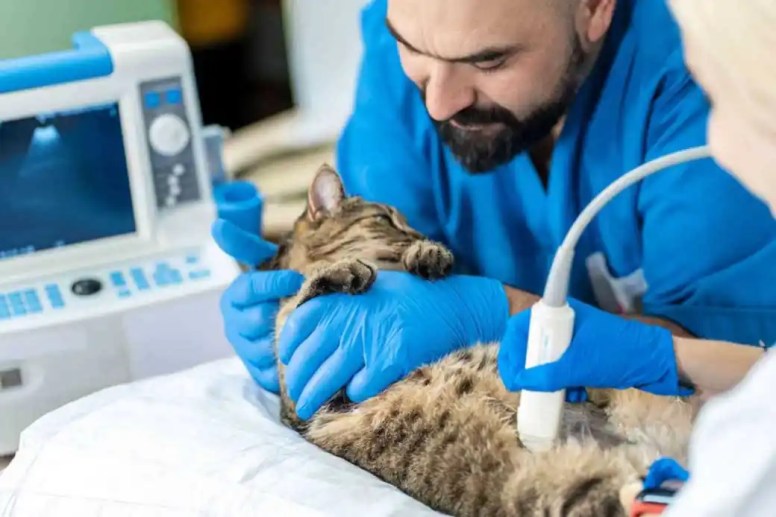The Duty of Pet Vaccinations in Preventing Serious Health Conditions for Your Pets
Vaccination Standards From Your Trusted Veterinarian
Vaccination standards offered by your trusted vet play an essential duty in securing your family pet's wellness and well-being. Core injections are essential for all pets, while non-core vaccines can be tailored to particular lifestyles and environmental exposures. Recognizing the nuances of inoculation timetables, which begin as early as six to eight weeks, is necessary for optimum protection. In addition, attending to usual mistaken beliefs bordering vaccinations can further improve animal proprietors' self-confidence in these safety nets. As we check out these critical facets, it becomes progressively clear why regular consultations with your veterinarian are indispensable for educated decision-making.

Relevance of Vaccinations
Vaccinations play an essential duty in safeguarding pet dogs against a variety of avoidable diseases. By boosting the immune system to acknowledge and deal with certain virus, vaccinations significantly lower the occurrence of transmittable conditions that can impact an animal's health and long life. Not only do inoculations shield private animals, however they also add to herd resistance, thereby lowering the overall frequency of conditions in the animal populace.
Timely inoculations aid to mitigate the spread of illness such as rabies, parvovirus, and distemper, which can have severe consequences for both humans and family pets. Moreover, inoculations are usually a need for boarding centers, grooming services, and canine parks, making them vital for those who desire to socialize their animals.

Core Vaccines for Pets
While the details vaccination requirements of family pets can vary based on private variables, core vaccines are widely advised to secure versus the most usual and severe conditions (Veterinarian Enterprise). Core injections are those considered essential for all animals, no matter their lifestyle or geographic place, as they secure versus possibly deadly and extremely contagious diseases
For canines, the core vaccines consist of those for canine distemper, parvovirus, adenovirus (hepatitis), and rabies. Canine distemper is a viral illness that affects the respiratory, stomach, and nervous systems. Parvovirus is understood for creating severe intestinal ailment, especially in puppies. Adenovirus can cause liver condition, while rabies is a zoonotic disease that presents a danger to both family pets and humans.
In cats, core injections include feline panleukopenia, feline calicivirus, feline herpesvirus (rhinotracheitis), and rabies. Feline panleukopenia is a very contagious viral disease that affects the body immune system and intestinal tracts. Calicivirus and herpesvirus are significant contributors to upper respiratory system infections in cats, while rabies stays a crucial concern for public health.
Seek advice from your vet to ensure your pets obtain their core vaccinations on time.
Non-Core Vaccines Explained
Non-core injections are tailored to resolve specific dangers linked with a pet's way of life, direct exposure, and environment to particular diseases. Unlike core injections, which are generally advised for all pets, non-core vaccines are thought about based on private situations. These vaccines are particularly important for family pets that may experience distinct pathogens as a result of their geographical place, travel habits, or tasks.
Instances of non-core vaccinations include those for Bordetella bronchiseptica, which is linked to kennel cough, and Lyme illness, triggered by ticks. Pets that frequently connect with other animals, such as those in boarding centers, pet parks, or grooming settings, might gain from Bordetella inoculation. If you live in a location where Lyme disease is widespread, immunizing against this illness can be a prudent option for outdoor-loving canines.
Various other non-core vaccinations might include those for leptospirosis, canine flu, and feline leukemia, depending on the certain threat elements existing. It is important to have a thorough conversation with your vet regarding your pet dog's lifestyle and the potential demand for these vaccines, ensuring a customized inoculation approach that finest protects your hairy good friend.
Vaccination Schedule Review

As pet dogs develop, it is very important to abide by the recommended booster inoculations. Veterinarian Enterprise. For grown-up pets, core vaccines are usually provided each to three years, depending on the certain vaccine and neighborhood policies. Non-core vaccines may be encouraged based upon lifestyle aspects and local illness occurrence, necessitating a tailored approach
Routine veterinary examinations are vital for updating inoculation routines. Your vet can give guidance on the most suitable immunizations for your pet, considering age, wellness status, and environmental risks. By staying positive and informed, family pet proprietors can guarantee their furry buddies receive prompt and efficient vaccinations, consequently securing their health and wellness throughout their lives.
Usual Myths Concerning Injections
Misconceptions concerning family pet inoculations can result in complication and unwillingness among family pet owners pertaining to the immunization process. One widespread myth is that vaccines are unneeded for interior pet dogs. While Continued it's true that indoor pets deal with lower risks, they are not completely immune to illness, as pathogens can be presented through different ways, consisting of human garments and other pet dogs.
An additional misconception is that injections can cause the illness they intend to prevent. In truth, a lot of injections include suspended or undermined microorganisms, which can not trigger disease in healthy animals. Some animal owners additionally think that their family pets ought to not be immunized if they are already healthy; nevertheless, vaccinations are a proactive procedure that helps avoid the beginning of health problem.
Furthermore, numerous pet proprietors are afraid that vaccinations will bring about long-lasting health problems. While negative effects can occur, they are momentary and typically mild. The benefits of vaccination-- shielding pets from potentially dangerous diseases-- much outweigh the dangers. Recognizing these common myths is crucial for liable family pet possession and making sure the wellness and safety and security of your hairy buddies. Always consult your veterinarian for exact details customized to your pet's details requirements.
Conclusion
In recap, adherence to inoculation standards is important for making sure official source the health and durability of family pets. Core vaccinations offer essential defense against severe diseases, while non-core vaccinations deal with specific risks based on private lifestyles. Developing an extensive vaccination routine, together with normal vet examinations, promotes optimum wellness monitoring. Dispelling common myths surrounding vaccinations better strengthens the relevance of informed decision-making in family pet care. Ultimately, a positive method to vaccinations is important for maintaining pet well-being.
Not only do vaccinations shield specific pets, yet they additionally contribute to herd immunity, thus decreasing the overall prevalence of diseases in the family pet population.
Misconceptions concerning family pet inoculations can lead to confusion and hesitation amongst pet dog owners relating to the booster shot process. While it's real that interior animals deal with reduced threats, they are not entirely immune to conditions, as virus can be presented with different methods, consisting of human clothing and various other pets.
Some family pet proprietors additionally think that their pets need to not be immunized if they are currently healthy; however, vaccinations are a proactive step that assists avoid the start of health problem.
The advantages of vaccination-- safeguarding animals from possibly lethal conditions-- much surpass the sites threats.